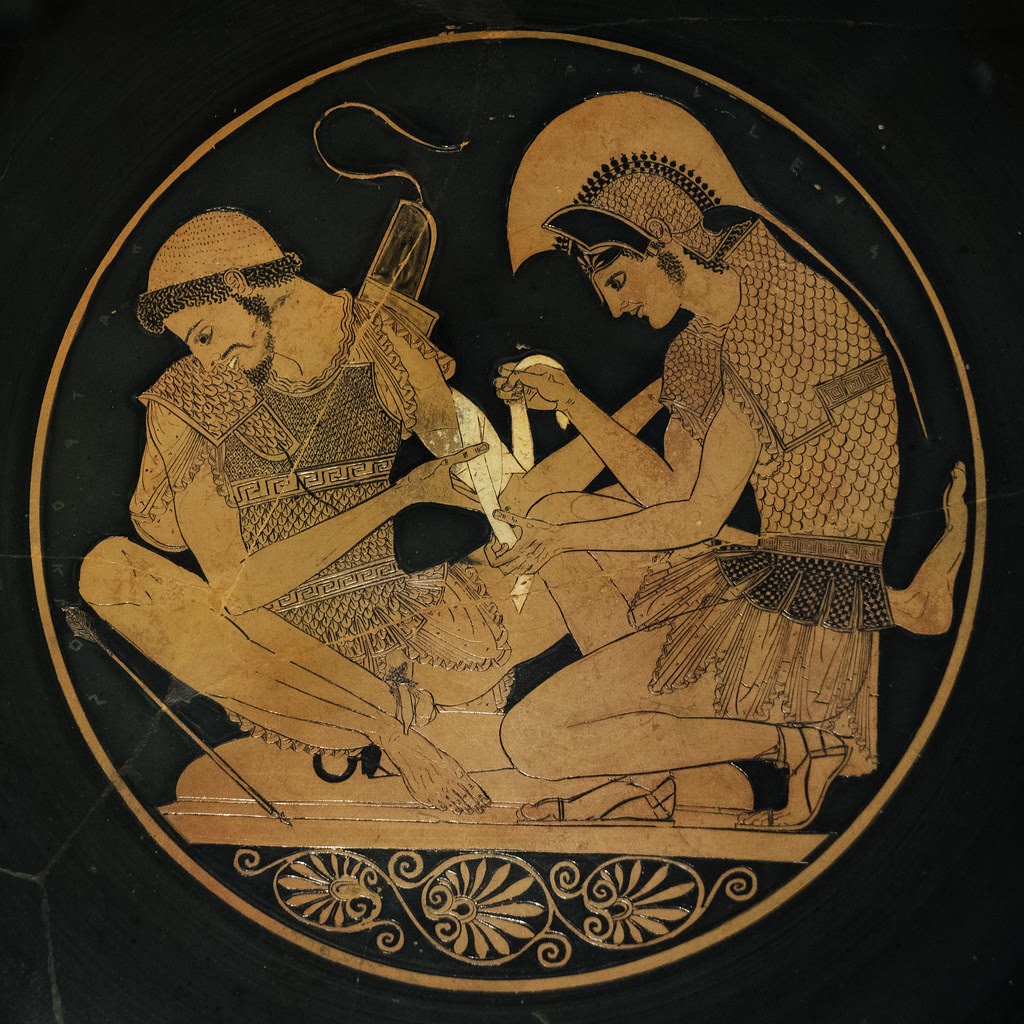Written by: Nicole Catarino
“Implore me not, dog, by knees or parents. Would that in any wise wrath and fury might bid me carve thy flesh and myself eat it raw, because of what thou hast wrought…”
Aside from the Gods of Olympus themselves, swift-footed Achilles is the most well-known figure of Greek mythology in our modern age. His story in the Iliad has inspired generations of stories about other valorous, yet tragically flawed heroes. However, despite Achilles being known throughout Ancient Greece for his legendary skill in battle, the characteristic most associated with his name today is anger, or more specifically, his unbridled rage. But what made this particular story element stick?
There’s already a prevalent trope in popular culture known as Unstoppable Rage where a character becomes so furious that they go into a frenzy of anger (think The Hulk from The Avengers.) But Achillean Rage is a different subcategory of this trope that’s a little more specific and, in my opinion, more compelling.
In my definition, Achillean Rage is a blinding anger that overcomes a character when someone they love becomes gravely injured or mortally wounded. For Achilles, his rage surfaces after his lover, Patroclus, is killed in a confrontation against the Trojan hero, Hector. In response, the character mourning gives in to fury and becomes dead-set on destroying whoever hurt the person they love, as well as anything or anyone else standing in their way. It’s a surrender to primal emotions, a momentary loss of humanity — and it happens to be one of my favorite literary tropes.
So this still begs the question: what makes this trope so appealing to so many people, myself included? The most obvious answer is that this trope brings about a display of extreme power framed in a heroic light—Hollywood’s favorite type of action. Though this may be partly true, the more nuanced answer, and the one I believe, is that we respond to this trope because of its deep roots in catharsis.
Achillean Rage is a violent, visceral, honest reaction to grief; it emerges in a moment where a character feels so forsaken by the world at large that they give into the part of themself which wants nothing more than to tear the world down with them. Achilles loses the person he loves the most to a war that he hadn’t wanted to fight, and he becomes so incensed with heartbreak that he all but feeds Hector to the dogs. His actions may not be righteous, but we can understand his pain all the same. There are injustices and horrors we encounter in our lives every day that enrage us, things from which we want nothing more than to protect ourselves and our loved ones. Achilles’ violent reactions are unique to him and him alone, but it’s easy to empathize with him nonetheless. His feelings would be shared by many in his place.
All in all, Achillean Rage fascinates us because it resonates profoundly. Despite its tendency to invoke animalistic tendencies in the characters it embodies, it is a deeply, deeply human response to loss — one that humans have related to for centuries and will continue to be moved by for as long as these myths exist.

